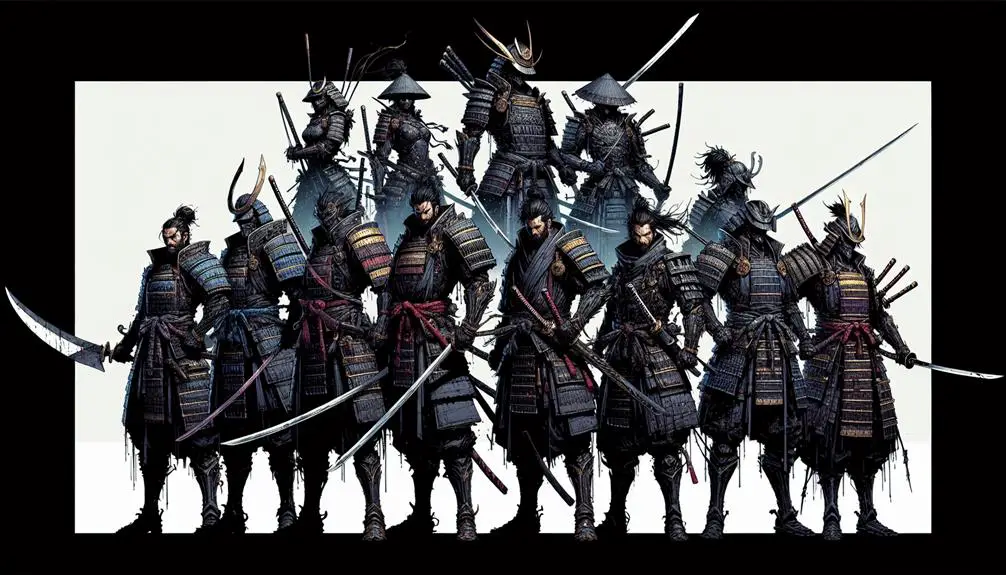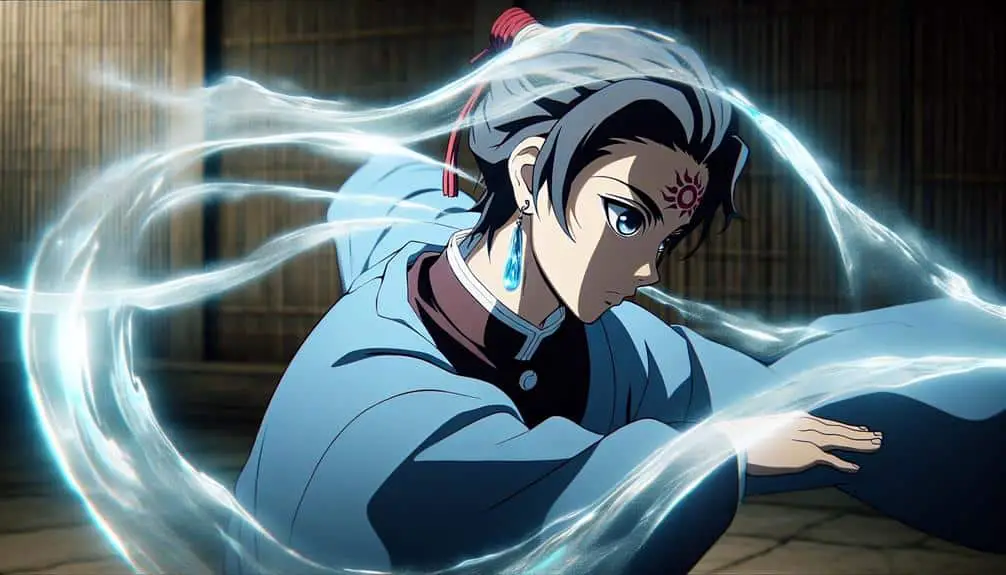Reveal the Impact of Hashira in Demon Slayer. Hashira, the elite Pillars, embody the pinnacle of skill and strength, leading the Corps with courage and sacrifice. Their rigorous training instills mental fortitude for split-second decision-making in combat. Hashira excel in wielding Nichirin swords, each mastering a unique breath style for devastating attacks. Their strategic prowess shapes combat dynamics, setting standards for younger slayers. Fallen Hashira leave a legacy of honor and duty, inspiring generations. The profound impact of Hashira sets the tone for the Corps' ethos and battlefield success.
Key Points
- Hashira set standards for elite combat and leadership in the Demon Slayer Corps.
- Their influence cultivates discipline, teamwork, and mental fortitude among demon slayers.
- Fallen Hashira leave a legacy of honor, sacrifice, and inspiration for future generations.
- Their strategic prowess and unique breath styles shape combat tactics and success in battles.
- The resilience and unity demonstrated by Hashira establish a culture of excellence and dedication within the Corps.
The Origin of Hashira
The Hashira in Demon Slayer, also known as the Pillars, originated from a select group of elite demon slayers who've mastered their breathing techniques to the highest level. This group holds immense significance within the Demon Slayer Corps, as they're the top-tier fighters tasked with leading the organization and combating the most powerful demons. Their origins lie in a history of unparalleled training and discipline, where these individuals honed their skills to perfection through rigorous practice and dedication.
The significance of the Hashira can't be overstated, as they represent the pinnacle of strength and skill within the Demon Slayer Corps. Their expertise in combat, coupled with their leadership abilities, make them essential in the ongoing battle against demons threatening humanity. The Hashira embody the values of courage, determination, and sacrifice, serving as beacons of hope for both their fellow demon slayers and the people they protect. Through their unwavering dedication to their craft, the Hashira inspire those around them to pursue excellence and uphold the principles of the Corps.
Hashiras Elite Training Regimen
Mastering the elite training regimen of the Hashira in Demon Slayer demands unwavering dedication and paramount discipline. The path to becoming a Hashira isn't for the faint of heart. Strength training lies at the core of their regimen, focusing not only on physical power but also on honing their techniques to perfection. Hashiras engage in rigorous exercises that push their bodies to the limits, ensuring they possess the strength needed to combat the demons that threaten humanity.
However, physical prowess alone isn't enough. Mental preparation is equally vital in the training of a Hashira. They undergo intense mental conditioning to develop unwavering focus, sharp instincts, and the ability to remain calm in the face of adversity. This mental fortitude is what sets the Hashira apart from other demon slayers, allowing them to make split-second decisions in life-threatening situations.
Hashiras Role in Combat
Entering the realm of combat, Hashiras demonstrate a formidable blend of honed skills and strategic prowess in their relentless pursuit to eradicate demons. Their fighting techniques are a proof of years of rigorous training and experience, allowing them to wield their Nichirin swords with precision and power. Each Hashira specializes in a unique breath style, utilizing it to release devastating attacks that strike fear into the hearts of demons.
Moreover, Hashiras are adept at devising battle strategies that exploit their enemies' weaknesses while maximizing their own strengths. They analyze their opponents with keen precision, adapting their approach to counter any threat swiftly and decisively. This ability to think on their feet and adjust their tactics mid-battle sets them apart as elite warriors within the Demon Slayer Corps.
Hashiras Influence on Demon Slayer Corps
Demon Slayer Corps owes much of its strength and reputation to the profound influence wielded by the Hashiras. The Hashiras play a pivotal role in shaping the leadership dynamics within the Corps. Their exemplary skills and unwavering dedication set the standard for younger demon slayers to aspire to. Through their rigorous training techniques and high expectations, Hashiras instill a sense of discipline and excellence that permeates throughout the organization.
Moreover, the Hashiras' mental fortitude serves as a guiding light for the Demon Slayer Corps. Their ability to remain calm and focused in the face of adversity inspires confidence in their comrades and fosters a culture of resilience. This mental strength isn't only important in combat situations but also in everyday challenges faced by demon slayers.
Furthermore, the Hashiras' influence extends to team dynamics within the Corps. By exemplifying cooperation, communication, and mutual respect, Hashiras set the tone for effective teamwork. Their ability to lead by example and work cohesively with others creates a sense of unity that's essential for success in battling demons and protecting humanity.
Legacy of Fallen Hashira
The profound impact of a fallen Hashira resonates far beyond their physical absence, leaving behind a complex legacy that continues to shape the Demon Slayer Corps. When a Hashira falls in battle, their legacy becomes a symbol of honor and sacrifice, embodying the duty each member of the Corps upholds. The legacy of a fallen Hashira serves as a reminder of the dangers they faced, the sacrifices they made, and the unwavering commitment to protecting humanity from demons.
The honor associated with a fallen Hashira's legacy serves as a beacon of inspiration for current and future generations of Demon Slayers. Their courage in the face of insurmountable odds and their willingness to lay down their lives for the greater good exemplify the highest ideals of the Corps. This legacy instills a sense of duty in every Demon Slayer, reminding them of the responsibilities they carry and the sacrifices they may be called upon to make in the ongoing battle against evil.




